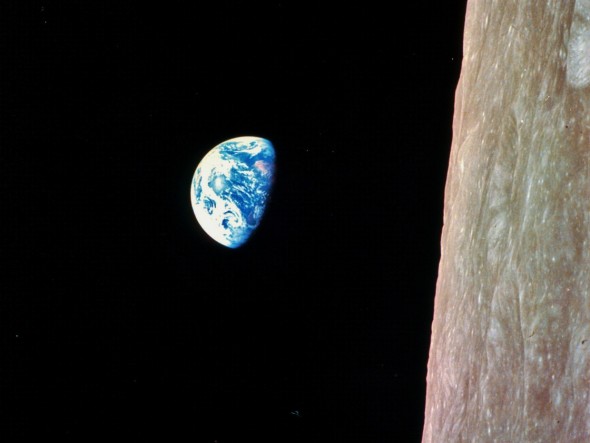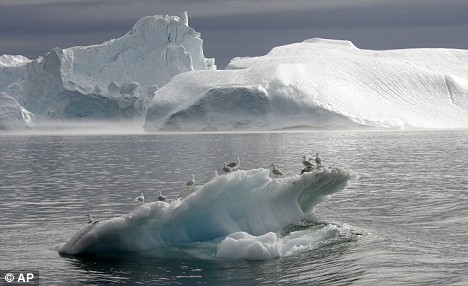Earth’s climate is changing rapidly posing grave concerns for sustaining life on the planet. We must first drop the denial of scientific evidence and mounting climate disasters, and adopt a Carbon Fee and Dividend, which will spur a transition to clean, renewable energy.


Carbon tax is best way to minimize disastrous climate change
By Robert Haw, Published in the Long Beach Press-Telegram
When Curiosity, NASA’s new Mars rover, arrived at Mars last summer I was part of an engineering team controlling a JPL spacecraft already in orbit around the Red Planet. Curiosity is not designed to detect life, but everyone is thinking about it. And this raises an interesting dilemma. Why are we as a society so enamored with discovering life on Mars and apparently ignoring life on Earth? We’re disregarding scientific warnings about eco-system collapses being brought on by climate disruption – with all the implications those warnings herald for homo sapiens, the “wise, wise ape.”
As Curiosity’s landing demonstrates only too well, our species is adept at goal-oriented behavior, narrowly focusing “eyes on the prize.” Whatever happens when raising yourself by your bootstraps doesn’t affect the background firmament. And when your ship comes in, you’ve got your prize. This has always seemed to be true. But what if you look at this assumption from the perspective of a spacecraft operator? In the environment of outer space every action has an immediate and very obvious reaction. You’ve seen it exhibited by crewmembers on the International Space Station. So in an analogous way, might similar kinds of reactions also occur on Earth but some of us just haven’t noticed them, haven’t thought about their consequences?
The Illusion of Fossil Fuel Wealth


This is indeed the situation on Earth today. Earth’s climate is changing rapidly and there is grave concern about the potentially adverse effects of these changes for life on the planet. Fossil fuels have brought us breath-taking prosperity, but over the long term this wealth is illusory because full-cost accounting hasn’t been practiced — for example the high cost on the biosphere of burning coal, oil and gas. Most of us are cost-conscious in making decisions, yet these business-as-usual “cheap” energy sources will contribute to multiple extinctions in the near future, leaving our children with only limited and very expensive options.
The problem is not so much today’s climate. As noticeable and frightening as the changes are to date, they’re just the tip of the iceberg and can be accommodated, barely. The alarming, existential threat is the continuance of business-as-usual leading to unprecedented heating. We have to be smart enough to anticipate this heating trajectory and take steps to avoid it.
But no “prize” awaits us if we’re successful. The only reward we’ll win is the satisfaction of knowing that nothing has changed. (Well not quite, the heating in the pipeline already has some serious climate change locked in place.) Fortunately our best science is up to the job and has told us what must be done to de-carbonize America and minimize catastrophic change.
National Climate Solution: Carbon Fee and Dividend
First we must accept the reality of our situation and drop the denial. The science is clear. The same scientific method that placed Curiosity on Mars applies just as well to understanding Earth’s climate.
Second we need a plan. The quickest way to bring about a national climate solution is to change federal excise policy. That’s what Sen. Barbara Boxer (D-CA) and Sen. Bernie Sanders (I-VT) placed on the table recently when they introduced the Climate Protection Act (S. 332). Their proposal levies a fee on coal, oil and natural gas at the first point of sale and then rebates a part of the revenue to legal residents.
Here are the main provisions of the Boxer-Sanders bill:
- A fee of $20 per ton of CO2 to start (17 cents per gallon at the pump).
- Fee rises 5.6% annually (about $1 per ton), a predictable increase.
- Fee is applied at the first point of sale of the fossil fuel (e.g. at the mine).
- Includes border tax adjustments to protect domestic industry and induce other nations to enact carbon taxes.
- 60% of the revenue returned in equal shares as a “dividend” check.
- 25% of revenue goes to deficit reduction.
- 15% will fund clean energy proposals and low-income weatherization.
This bill is a promising start at bending the emissions trajectory, but as proposed it’s insufficient because the fee rises too modestly to appreciably slow climate change. The annual CO2 fee needs to increase substantially – say $10 per ton. That sort of price escalation will incentivize consumers and businesses to decrease fossil fuel use, spur a transition to renewable energy, and save our collective bacon. New businesses and jobs will spring up to meet the new demand, with none of them needing energy subsidies or carbon regulations. And in the process the first dividend checks mailed to all of us will be 50% larger.
Robert Haw is a senior engineer at the Jet Propulsion Laboratory, and the founder of JPL’s Climate Change Symposium.












